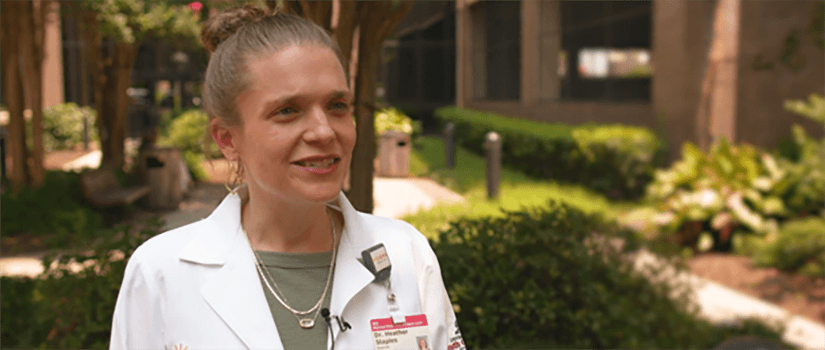Respiratory syncytial virus (RSV) is acknowledged as the leading cause of hospitalization for infants under a year old in the United States. RSV is a viral infection that targets newborns and can cause severe lower respiratory tract infection.
“It can lead to hospitalization in some children, particularly high-risk children, and can lead to death in even up to 300 children per year across the country,” says Dr. Heather Staples, a clinical assistant pediatric professor at the University of South Carolina School of Medicine Columbia and a pediatric pulmonologist at Prisma Health.
Staples categorizes infants who are high-risk for complications from RSV infections as including:
- those born prematurely
- those who have underlying cardiac or pulmonary disease
- those with neuromuscular disease
The announcement of a new method to protect newborns from RSV arrived July 17 when the FDA granted approval for the antibody nirsevimab. It is a monoclonal antibody that is a one-dose per season prevention and protection against the severe disease.
The CDC on Aug. 3 announced its recommendation for nirsevimab to help protect all infants under 8 months and some older babies at increased risk of severe illness caused by RSV.
Now, parents and soon-to-be parents will enter the fall with questions about how the antibody’s arrival will affect their families.
Staples says the arrival of nirsevimab addresses the urgent need for a product that reduces the impact of RSV disease on children and families, and she anticipates it will ease health care system burdens.
“Even when RSV does not lead to hospitalization,” Staples says, “high levels of community infection can overwhelm pediatric medical providers, whether that is primary care practices, urgent care or emergency departments, and that leads to longer wait times for all patients.”
How can nirsevimab help?
Nirsevimab is meant to serve as a one-time dose at the beginning of RSV season to help prevent infection and help prevent severity of infection for infants who are born during RSV season or are younger than 8 months at the start of the RSV season.
Until now, the only monoclonal antibody injection available for RSV protection or RSV prevention of severe disease was available exclusively for premature infants.
A nirsevimab injection would be available to term infants and all infants who are of age within RSV season.
“This could be huge for protection of any child who is at risk during RSV season,” Staples says. “This could reduce long-term wheezing episodes in these children who sometimes will have recurrent respiratory problems after an early RSV infection. That’s something we see particularly in our field of pediatric pulmonology.”
Even if the wheezing is not severe enough for medical attention, it requires close monitoring at home.
“We see parents who miss numerous workdays because of this illness,” Staples says.
“In seasons when RSV infections are high, we often see a corresponding uptick in hospitalizations due to lower respiratory tract infections due to RSV,” she says. “This is not only distressing and burdensome to the families of those patients but can lead to hospital bed shortages.”
For newborns who arrive during the fall and winter or infants young enough at the start of RSV season, nirsevimab could cut down on office visits and hospitalizations.
“We could see a vast reduction in hospitalizations across the board for RSV,” Staples says.
